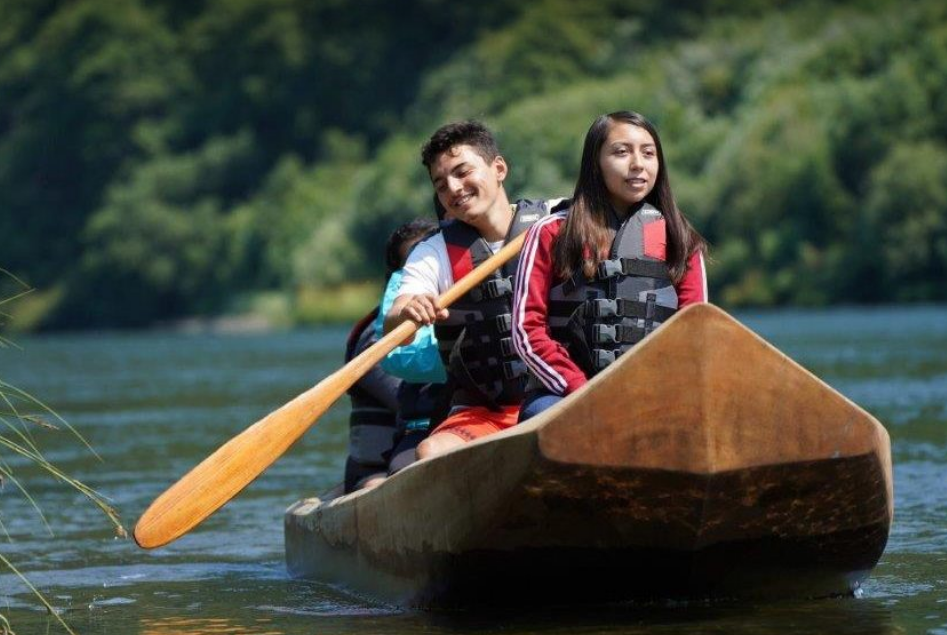
- Details
- By Native News Online Staff
One in four American Indian, Alaska Native, and Native Hawaiian (AIANNH)-owned firms are supported by the tourism industry, according to a report released on Tuesday at the 23rd Annual American Indian Tourism Conference that is in session at the We-Ko-Pa Casino Resort in Fort McDowell, Ariz.
The Economic Impact of Indigenous Tourism Report, released by the American Indian Alaska Native Tourism Association (AIANTA), says the Native hospitality industry supports 117,852 jobs in Indian Country.
Want more Native News? Get the free daily newsletter today.
When all factors are considered, Native American tourism is a $14 billion industry.
“This report confirms that Indigenous tourism businesses in the U.S. are an economic powerhouse,” said Sherry L. Rupert, AIANTA CEO. “For too long, the Native hospitality industry has not had hard data to back up the perceived value of its economic impact, so we are delighted to release this study. We are especially thrilled to learn that more than one in four Native-owned businesses are hospitality businesses.”
The report is the first to formally track the economic impact of Native-owned hospitality businesses. These 40,618 businesses provide 117,852 jobs across the country.
The report was produced by Honolulu-based SMS Research under the guidance of the firm’s Executive Vice President Daniel Nāhoʻopiʻi (Kānaka Maoli, Native Hawaiian), who formerly managed the tourism research program for the Hawai’i Tourism Authority.
“This report showcases the importance of tourism to Native businesses,” Nāhoʻopiʻi said. “Especially since AIANNH-owned hospitality businesses report a larger-than-average number of employees (among firms with paid employees) and larger than average sales (across all firms) than their AIAANNH counterparts who are not engaged in the tourism industry.”
Other Key Findings:
- The accommodation and food services sector employed the most workers (45,756 jobs), while the retail trade sector accounted for the highest annual sales ($7.79 billion).
- Of the 40,618 AIANNH-owned tourism firms, most (82 percent) were self-employed individuals (33,300 non-employer firms) while another 7,318 (18 percent) of them were firms with paid employees.
- Compared to all AIANNH-owned firms, AIANNH-owned tourism firms were at an advantage since the average number of employees for firms with paid employees was larger and the average sales across all firms were also greater.
- AIANNH-owned tourism firms were smaller in scale (payroll, wages, sales) than tourism firms in the U.S on average.
Data for the Economic Impact of Indigenous Tourism Report was collected prior to the COVID-19 pandemic and does not address 2020 data. The data was taken from the Annual Business Survey and the Non-employer Statistics by Demographic (NES-D). Since the most recent data collected for NES-D was 2017, the study utilized the 2018 ABS survey (2017 data) in order to accurately benchmark information across all business types.
More Stories Like This
Native News Weekly (August 25, 2024): D.C. BriefsNavajo Nation Gaming Enterprise Marks Problem Gambling Awareness Month With $3.4M in Support
Cheyenne River Youth Project to Celebrate Women’s Strength at Barbie-Themed Passion for Fashion on March 14
Celebrating Native American Women
Native Bidaské: The Illusion of Freedom and the Myth of America 250, Leonard Peltier Speaks Out
Help us defend tribal sovereignty.
At Native News Online, our mission is rooted in telling the stories that strengthen sovereignty and uplift Indigenous voices — not just at year’s end, but every single day.
Because of your generosity last year, we were able to keep our reporters on the ground in tribal communities, at national gatherings and in the halls of Congress — covering the issues that matter most to Indian Country: sovereignty, culture, education, health and economic opportunity.
That support sustained us through a tough year in 2025. Now, as we look to the year ahead, we need your help right now to ensure warrior journalism remains strong — reporting that defends tribal sovereignty, amplifies Native truth, and holds power accountable.
 The stakes couldn't be higher. Your support keeps Native voices heard, Native stories told and Native sovereignty defended.
The stakes couldn't be higher. Your support keeps Native voices heard, Native stories told and Native sovereignty defended.
Stand with Warrior Journalism today.
Levi Rickert (Potawatomi), Editor & Publisher

